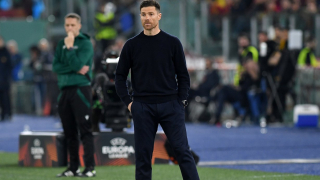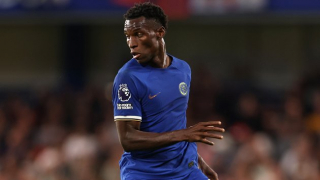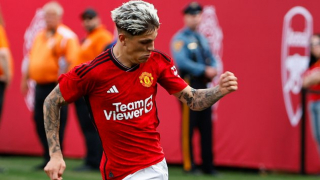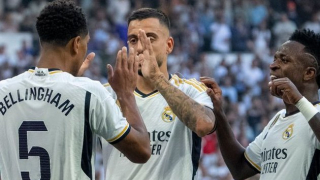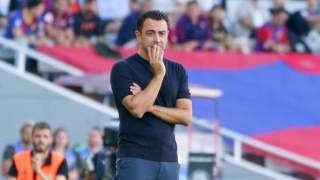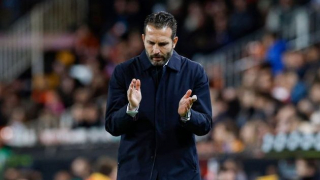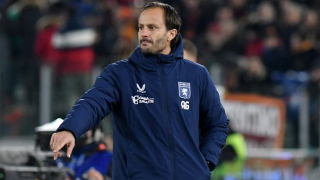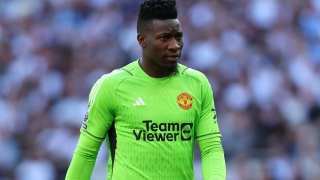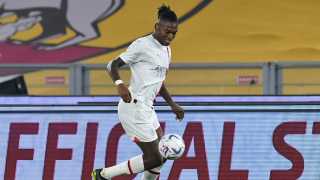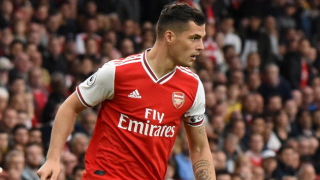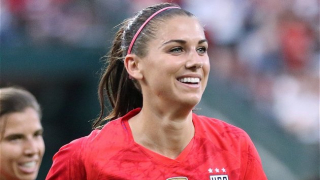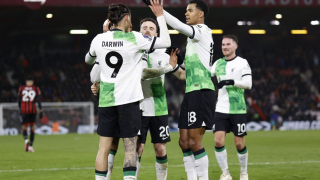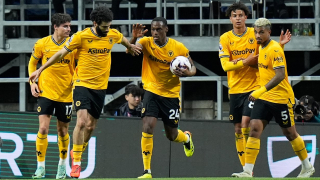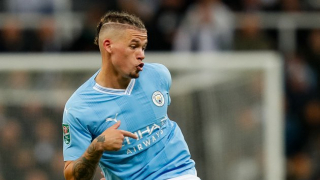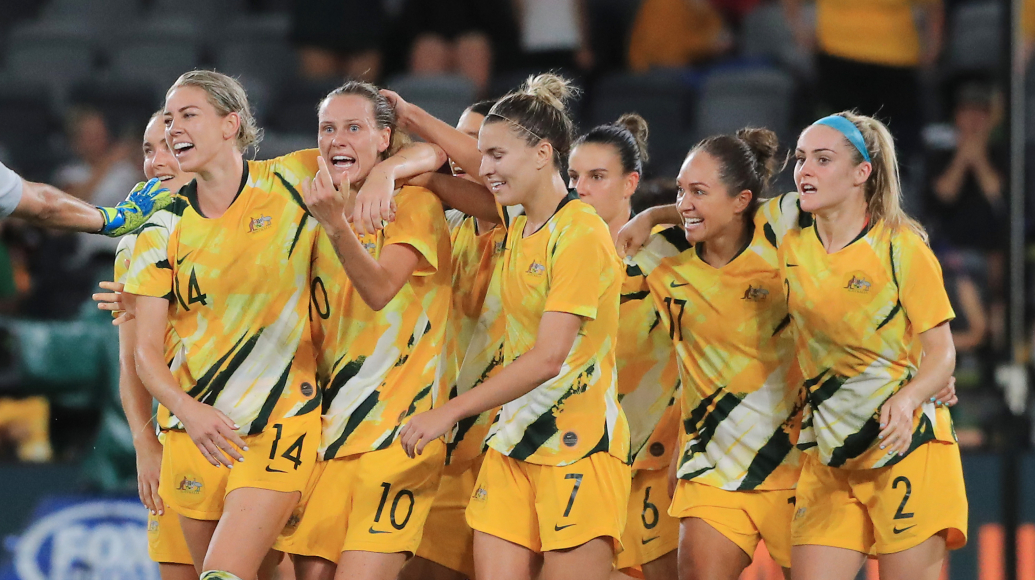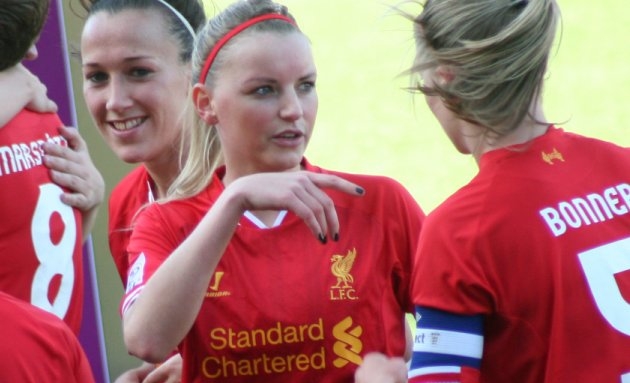This week, we interviewed Luis Juega Diaz de Entre-Soto, the managing director of player agency, GplusB Group International Sports Management, located in Spain. They work only with women footballers, unlike other agencies that handle men and women. He provides some interesting insight into how they care for their players beyond signing the contract and thoughts on the state of the women's game. We also look at a few of their American players with clubs in Spain. We finish with a brief look at a Quarterly FIFA Report tracking Player Transfers around the world.
Interview with Luis Juega Diaz de Entre-Soto, the Managing Director of GplusB Group International Sports Management, which is Solely Dedicated to Representing Women's Footballers
TribalFootball.com spoke exclusively with Luis Juega Diaz de Entre-Soto, the managing director of player agency GplusB Group International Sports Management, located in Madrid, Spain. His agency works only with women footballers, unlike other agencies that handle both men and women footballers. Agents are an increasingly important part of the women's soccer game and his firm handles domestic players in European leagues as well as international players, including some North Americans in France and Spain, the latter including Cara and Lauren Curtin with Zaragoza CFF in the Spanish second division (see more below).
Luis Juega is a trained lawyer—attending school in Spain and Germany—and with his partner—a trained economist—they fell into their business five years ago when his partner helped a Canadian player negotiate a transfer to a German Frauen Bundesliga side, helping bridge the language and cultural gap for the two parties. Today they have over 40 clients and their approach is quite unique in the agency business in that they help their players with everything after their move—including finding and inspecting apartments for them to live in, and other important aspects of a transition to a new club, and sometimes a new country. Juega explained that their approach is to really go beyond the agency role to being, "a friend of the players," in order to help them in any situation that comes up. He further described it as the, "human part of an agency."
Juega discussed changes that he sees coming within women's football in general and in Europe. With the minimum salary in the Spanish Primera Division Femenina league of around 15,000 Euros a year, there is not the financial reward that players in the men's game see. However, they are fulfilling a need as more and more female players are utilizing agents, some of which are unqualified and just focused on the money they can earn. There are groups in the States that charge players (or their parents) for attending national team identification camps (a common practice aimed at the large Mexican-American population in California and the southern border region). The relationship between some of these groups and El Tri Femenile is tangential at best and is largely viewed by many coaches as simply a for-profit venture. There are also groups that charge players up front when trying to find them clubs abroad, or make them square up the difference if a club cannot afford to pay a standard 10% agency fee. GplusB Group International Sports Management is the polar opposite to these types of approaches and it was refreshing to hear, particularly with their knowledge of and passion for the women's game in Europe and internationally.
GplusB Group is truly an international agency and Juega speaks English, French, German and Spanish fluently and the firm has offices in Switzerland (Geneva) and in Spain. Juega explained, "We work with players from very different countries. Currently most of our players are Americans and Spanish, but we also work with many players from Northern European countries. We actually have a scouting team, which is exclusively focused in analyzing the main leagues in Europe and America; this allows us to find the players that meet the desired profiles of the frontline teams. Also, many of the players we work with recommend their friends to work with us. This is very gratifying for us, as it shows the good work we do with all of our players."
Looking ahead over the next 2-4 years, Juega said that, though COVID will have a dampening effect on women's football for an undetermined length of time, there are some positives coming out of the game, "For example in Spain, we have succeeded in having the Iberdrola League considered professional for the first time in its history next year; currently in Spain, only the first- and second-men's soccer divisions, and the first men's basketball división, are considered professional sports. This is very positive for both players and clubs, as they will have certain benefits and there will be a more specific legal framework."
He is also seeing an increase in fan interest in the game which is of vital importance to the further development of women's football. He explained that, "The more fans there are, the more visibility the clubs and players have, meaning there will be more investors and therefore money to continue investing in the growth of women's football." He is also pleased that FIFA, UEFA and the national football federations are doing more on the investment and promotional side for the game. Luis Juega said, "For example, having a powerful and solid Women's Champions League, or generating a worldwide media coverage are pending duties of these institutions. There has been a lot of work already done to equate men's and women's soccer, as for example giving the same individual awards to men and women (Ballon D'Or, UEFA awards), and even some national teams have equated the premiums of their men's and women's teams [Australia, Norway and Republic of Ireland to name but a few]; nevertheless we need absolute involvement of all parties involved so that women's football can continue to grow every year."
He said that specifically regarding COVID-19, he described it as "a ruin for women's soccer, just as it is for the global economy in general. Last season [league seasons] were not finished in many countries, which means that the clubs have less visibility. This means that the sponsors lose interest in women's football, as there are no matches and therefore there are no fans. It is a very complicated situation; the clubs have lost a lot of money in many areas, for example in television rights, tickets, sale of shirts, etc. and they have to continue paying salaries to the players and all the club workers. Many clubs have made salary reductions to their entire squad, and during this summer transfer season, we have noticed that salaries have dropped considerably….I personally believe that we will face 2 to 3 very hard years, and that many clubs are going to have important financial problems and they will have to adjust their budgets to the maximum." In terms of pulling out of this quagmire that COVID has thrown every sport into and some teams into significant risk of long-term survival—particularly women's club football—he said that, "I think the most important thing right now is that the leagues can be played normally, as suspending them or changing their formats could have a very negative effect on the development and growth of world women's football." So far, league play is taking place this fall in Europe, even though leagues and competitors started later than usual (including England's Super League, Sweden's Damallsvenskan and the UEFA Women's Champions League Qualification Stage with 40 teams starting next month, when usually it is held in August. This year, rather than the 10 team preliminary groups with 4 teams each, the 40 WCL clubs are seeded by their FIFA Coefficient Rankings and drawn together for a one match knockout game, with then a second qualifying round between the 20 winners to determine the 10 winners who will advance to the Round of 32, to be played in mid-December in their traditional home and away ties format.
With Luis Juega's extensive knowledge of women's league in western and eastern Europe (he found American Kylie Strom playing for Sparta Prague—albeit a UEFA WCL regular but in a weak league—and she signed with his agency and is now with Spanish power Atletico Madrid—see more below) he rated the top leagues in Europe, among England, France, Spain, Germany, Sweden and Italy. Juega Diaz said, "I personally think that the most competitive league right now is the Ligue 1 (France), as it is a consolidated league with great teams, among them the best team in the world for the last 10 years, Olympique de Lyon.
The German [Frauen] Bundesliga is a very physical league; they have very powerful players and they always take the matches in the Champions League to the physical part. It is one of the pioneer countries in women's football, but I have the feeling that the growth of the league has stalled a little bit in the past years.
In a third tier, very close to the German Frauen Bundesliga, we have the Spanish Liga Iberdrola and Swedish Damallsvenskan. In Spain, little by little, a lot is being invested in women's soccer; we have a great tradition for soccer and players of a very high level. In fact, in the last World Cup we were knocked out by the almighty USA in a match marked by two polemic penalties. As for Sweden, it is a country with an enormous talent; they have a spectacular National Team, but most of their franchise players play in other European Leagues.
The Serie A Femminile (Italy) for me is a league that is in development and it has grown alot in recent years, improving its sports and institutional level year after year; soon it will be one of the reference leagues in Europe.
As for the FA Women's Super League (England), I am very, very expectant this year. The English clubs have signed many world-class and highly contrasted players; they are also very solid at the institutional level, and all their games are broadcasted, something [that is] very important to create interest and attract investors. I think it will be the reference league in Europe in a very short time." He mentioned that one can watch most of the FA WSL games online throughout Europe and this reporter has even seen a number of games on the NBC Sports Network, a major network in the States, which also holds the rights to the English Premier League for the American market.
Luis Juega Diaz de Entre-Soto, the Managing Director of GplusB Group International Sports Management (Photo Courtesy of GplusB Group International Sports Management)
TribalFootball.com also received some thoughts from American forward Cara Curtin, a GplusB Group client who plays at second division side Zaragoza in Spain, along with her twin sister and midfielder Lauren. Both Curtins previously played with Lugano in Switzerland, which is owned by a Swiss-American and attracted over a dozen Americans to the club ahead of last season's Women's Champions League debut, where many could take courses at a local University. Cara Curtin explained her journey to Europe to play professionally, "After my college career at Sonoma State I continued to play for California Storm (a team in the WPSL that was owned by now-deceased league founder Jerry Zanelli. The Storm won league titles in 1999, 2002 and 2004 and lost the Championship game on five other occasions). In 2016, when my family and I took a trip to Italy, we met up with a relative's long-time friend who got us in touch with the president of FF Lugano. About two months later I went to Lugano for a tryout." She has been playing professionally ever since. After Lugano she played at Valencia for a season before moving down to Division 2, where she joined her Lauren. Cara added, "Right now my goal is to help my current team, Zaragoza CFF, move up to the first division and hope to stay for a few seasons. I would like to play in the NWSL but for now I am happy playing in Europe." She found the of play in Europe different from at home, "In Spain the focus is more on possession, building up the play and taking our time going forward. In America it's more physical and direct. In Switzerland it's a little mix of both."
Another GplusB Group client is defender Kylie Strom (28), who played at Boston University from 2010 through the 2013 season. She had a brief spell in the NWSL with the Boston Breakers in 2 seasons, playing in 7 games in 2016. After a short stay with Frankfurt in Germany in 2015, she returned to Europe and played two seasons with Sparta Prague, winning the clubs's Player of the Year award both times as her team did the league and cup doublé both seasons. She played in 8 matches last season with Atletico Madrid in Spain and scored the winning goal against Spartak Subotica of Serbia in the WCL Round of 32 first leg match (3-2), with Atletico advancing 4-3 on aggregate, before finally losing in the Quarterfinals to Barcelona 1-0 in August in San Sebastian, where the Madrid club were severly hampered by injuries and players out from positive COVID tests. Strom has played in three games so far this season, with the 2020-21 Spanish League season starting a month later than usual because of COVID-19. With her platform of playing with one of the top sides in Europe, that very well could put her in line for a future chance to play for the U.S. National Team and their new head coach, Vlatko Andonovski (a native of North Macedonia). Strom has played with the U.S. in the past at the U-23 level..
FIFA Report on Men's and Women's Transfer Fees
We recently received a very interesting yet brief (10 pages) FIFA Report on Men's and Women's Transfer Fees entitled the FIFA International Transfer Market Snapshot (June-October 2020). This quarterly report looks at men's and women's players transfers with a summary of the same period of time over the past 3 years that women's transfers have been tracked. The Report states that compared to the men's game, "On the other hand, although transfers of female professional players remain relatively rare, the women's game seemed less affected by the COVID-19 pandemic: indeed, the number of international transfers rose from 385 between 1 June and 2 September 2019 to 522 between 1 June and 5 October 2020, an increase of more than 35%. The spending on fees for international transfers of female players also grew significantly (page 3)." One driver of this increase is a large number of Australian players being urged to play abroad—particularly their national team pool—as their local W-League changed it's calendar and retrenched after a drastic hit on league teams' and the Federation's funding sources during the COVID-19 pandemic. We are also seeing players move from America (including NWSL players) to get more playing time as the 2020 NWSL season was drastically shortened due to the pandemic. Yet another trend is that players have signed with teams at home (particularly European players still in college in the States) because of travel restrictions or the changes in league schedules in America.
Looking at the monetary value of transfers, the Report said, "Since 2018, international transfers of female professional players have also had to be processed via TMS. Although the number of transfers of female players does appear to be steadily increasing—the latest tally is 36% up on the equivalent period in 2019—the actual number of transfers remains relatively low. Transfers involving a fee are even less common and there were just 18 such deals this time round (see Figure 14). Figure 15 below depicts the change in spending on transfer fees for international transfers of female players. While the number of transfers with fees remained relatively stable (16 in 2019 compared to 18 in 2020) spending on fees almost doubled (Page 9)." Keep in mind that this doubling of the spend this year is likely due to Pernille Harder's transfer from Wolfsburg to Chelsea, a record fee for a women's players, and reported in the $US350,000 range.
Women Player Transfers the June-September/October period across 3 Years
Year # of Players US$ Amount
2018 265 US$258,800
2019 385 US$454,600
2020 522 US$821,800
This column will continue to use this important FIFA quarterly document as a benchmark for the financial health and changes in the women's game. One addition that would be informative in future editions of the Report would be more breakouts of the information charts and data specifically for women as the number of transfers and dollar amounts increase in the future, including top 20-25 individual transfers, countries involved (engaging and releasing federation), Confederation summaries and other data crosstabs.
In the weeks to come, this column will look at the UEFA Women's Champions League Qualifying Round Matches, present our annual W-League 2020/21 season preview, wrap up the Northern European League Seasons in Iceland, Norway, Sweden and Finland and look at the expansion draft in the NWSL for the new Louisville franchise, which will start play in 2021.
Tim Grainey is a contributor to Tribal Football. His latest book Beyond Bend it Like Beckham on the global game of women's football. Get your copy today.
Follow Tim on Twitter: @TimGrainey

